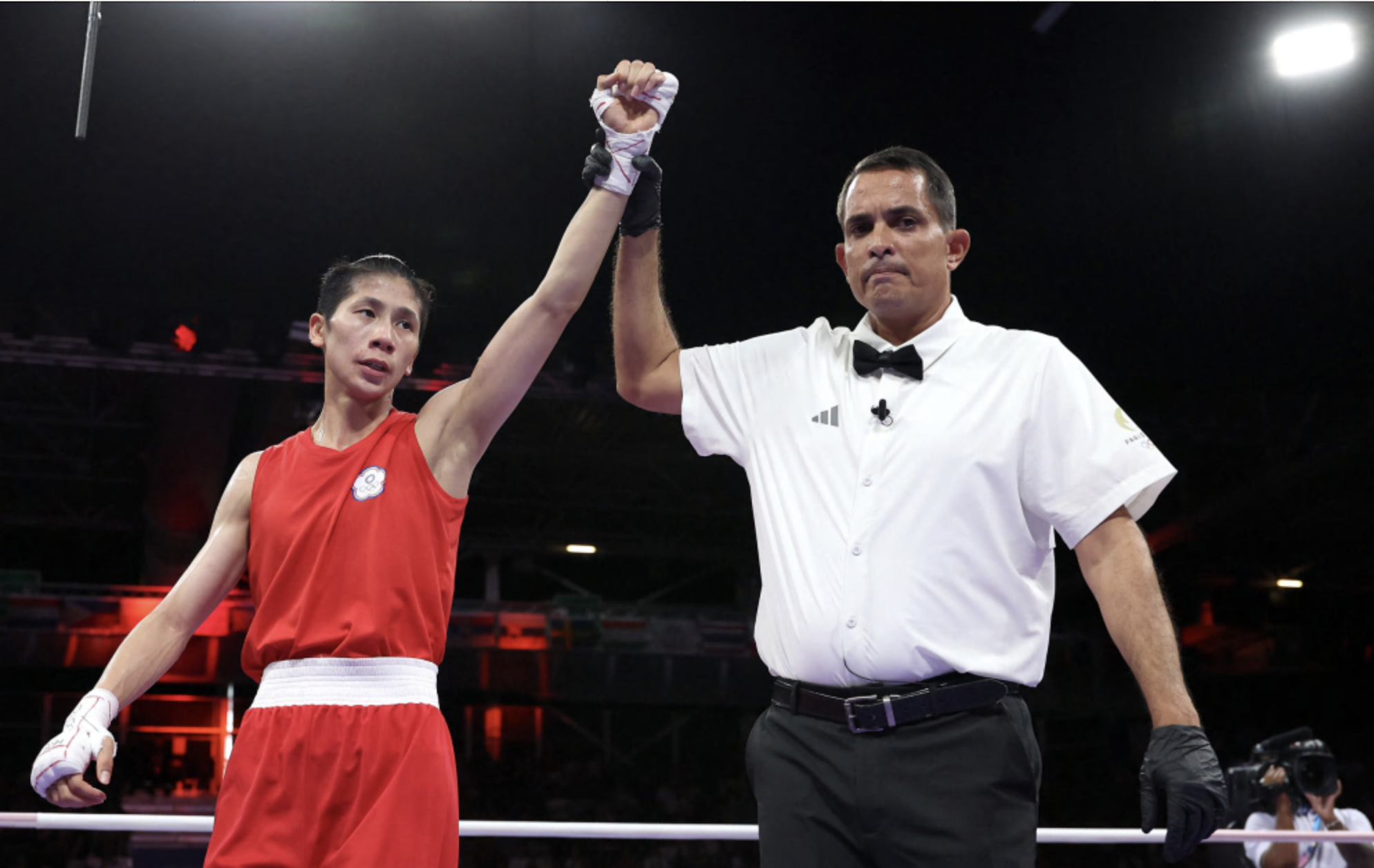According to international media reports, Carini fell to her knees in tears while Khelif’s hand was raised in victory.
The manner of Carini’s defeat sparked concern and anger within and beyond the boxing world.
As reported by CNN, Khelif was disqualified from the 2023 World Championships after failing an unspecified gender eligibility test, and her participation in the Paris Olympics has sparked controversy.
Trump, Meloni, author J.K. Rowling, and billionaire Elon Musk have voiced their displeasure with Khelif being allowed to compete.
The fight has ignited a debate, often misinformed, about women’s participation in sports, along with a wave of online abuse.
Transphobic commentators falsely labeled Khelif ‘a man’ due to an alleged physical advantage.
However, the International Olympic Committee (IOC) strongly supports her participation in the 2024 Games. IOC spokesperson Mark Adams affirmed that Khelif was “born female, registered female, lived her life as a female, boxed as a female, and has a female passport.”
Adams further clarified, “This is not a transgender case.”
Numerous athletes have voiced their support for Khelif, including Irish boxer Amy Broadhurst, who fought and defeated Khelif at the World Championships. Broadhurst posted a picture of them before their 2022 match on social media, captioned: “Please, the hate has been ridiculous.”
Lin Yu-ting of Taiwan faced similar scrutiny but emerged victorious in her Olympic debut on Friday. She defeated Sitora Turdibekova from Uzbekistan 5:0 in the women’s 57-kilogram division, becoming the second boxer at the Olympics embroiled in a gender controversy.
The controversy surrounding Lin stemmed from the disqualification of two boxers at the 2023 IBA Women’s World Boxing Championships.
Both Khelif and Lin have suddenly come under intense scrutiny for their presence in Paris, despite their years of amateur competition.
While Lin won International Boxing Association (IBA) world championships in 2018 and 2022, the governing body stripped her of a bronze medal last year, citing unspecified eligibility requirements in a biochemical test.
|
|
| Match referee Emanuel Ferreira raises Lin Yu-ting’s hand in victory at the Olympic Women’s 57 kg preliminary round in Paris, on August 2, 2024. Photo: Getty Images |
Khelif, on the other hand, won a silver medal at the IBA’s 2022 world championships but was disqualified from last year’s championships just before her gold-medal match due to allegedly elevated testosterone levels.
In June 2023, the IOC revoked the IBA’s status as the global governing body for boxing due to failures in governance, finance, and ethical reforms.
Consequently, the IOC is overseeing the boxing competition at the Paris Games and has allowed Khelif and Lin to compete under its eligibility guidelines.
The IOC has defended its decision to allow the two boxers, who failed a gender eligibility test, to participate in Paris 2024, as reported by The Independent.
On Thursday, the Paris 2024 Boxing Unit and the IOC issued a statement addressing the ongoing controversy, asserting that, as in previous competitions, “the gender and age of the athletes are based on their passport,” according to the National Review.
Lin has been an elite-level amateur boxer for a decade, and Khelif for six years.
“Everyone competing in the women’s category is complying with the competition eligibility rules,” stated IOC spokesperson Mark Adams. “They are women in their passports, and it’s stated that they are female.”
IOC President Thomas Bach condemned the ‘hate speech’ directed at Algerian boxer Khelif and Lin at the Paris Olympics, calling it “totally unacceptable.”
“We have two boxers who were born as women, raised as women, hold passports as women, and have competed as women for many years,” Bach added.
However, sex testing in sports has been criticized by groups like Human Rights Watch, who argue that it violates fundamental rights to privacy and dignity.
The specifics of the tests that led to Khelif and Lin’s disqualification in 2023 remain confidential.
Female athletes with differences in sexual development (DSD) are often subjected to such tests, which can be associated with conditions where the body naturally produces higher levels of testosterone.
The controversy surrounding Khelif and Lin is the first of its kind involving DSD athletes in combat sports at the Olympics.
While there have been transgender athletes competing at lower levels, such as Fallon Fox in mixed martial arts and Mack Beggs in high school girls’ wrestling, neither Khelif nor Lin is known to be transgender.
Khelif advanced to the quarterfinals on Saturday, and Lin is set to face Bulgaria’s Svetlana Kamenova Staneva in her quarterfinal match on Sunday.
The IOC stands firmly behind its decision to include both athletes, and it is unlikely that either of them will be ruled ineligible during this competition.
Tokyo Olympics will begin on July 23 next year
Postponed Tokyo Olympics to open July 23 next year, organizers said on Monday, after the coronavirus forced the historic decision to postpone the Games until 2021.










